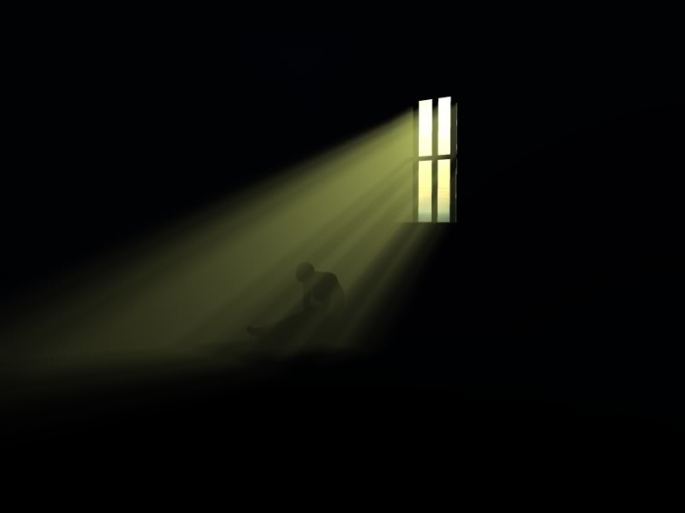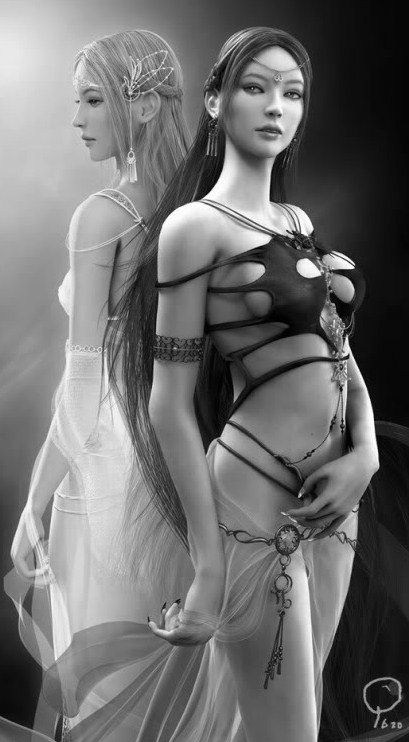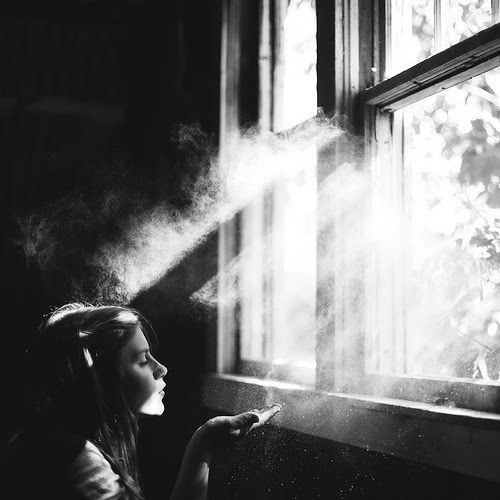Life recently has brought me to contemplate the aspects of life in its moments of what we often describe as “darkness,” which we all experience in one way or another if we attend faithfully to the opening of the world within us. All my life, I have been periodically experiencing this darkness, this opposing aspect of my inner life, and like many of us, have been attempting to avoid it whenever possible. To this day, I often lean toward avoiding the sometimes unpleasant realities that accompany my secret longings and moments of despair or sadness, acting in ways that refrain from provoking unpleasantness most of the time. I tend to suppress my longings in my daily existence, contenting myself with the relegation of them to a rich fantasy life, certain that engaging them in full would undoubtedly obliterate whatever degree of sanity I possess. I do not reject the dark night–I simply endure it silently.
In an article by M. Holden, “Light Who Loves Her Sister Darkness,” she advises us not to “reject” the night and hope for a life led completely “in the light,” as there are “as many ways to be lost in the light as in the dark,” and she reminds us, “Since day and night contain the seeds of one another, there is no darkness unrelieved by the coming dawn, and no stark, sun-ridden day without her stash of mystery.”
And yet, the darkness seems so unappealing, the unknown so frightening at times, and the uncertainty of it all, at times, so maddening. The reference in the article to what Jung described as “The Shadow,” sent me back to my reference section containing Jung’s “Aion: Phenomenology of the Self,” to re-read the section on the archetypes and their characteristics as elements of the “collective unconscious.” The nature of the shadow, “can be inferred,” Jung suggests, “from the contents of the personal unconscious,” and “involves recognizing the dark aspects of the personality as present and real…They have an emotional nature, a kind of autonomy, and accordingly an obsessive, or, better, possessive quality.”
M. Holden makes the further point that “The light of consciousness inevitably casts a shadow, as does sunlight in the natural world,” and she astutely notes that “For every thing that consciousness enlightens, it darkens something else.” We tend to attribute light with “goodness,” and to see the dark as “bad,” but in fact, “this darkened, fertile part of ourselves has much to teach us.”
Jung quite often addressed the contrasts of light and darkness in his writings, and as M. Holden pointed out, he agreed that “…we subdue the chaotic, uncontrollable elements of the natural world at the price of its fertility, just as we cast out the darkness in ourselves at the price of our own wholeness.” Jung found his interests in psychiatry and noted in his autobiography that among his friends, he encountered only resistance to the subject–a curious, hard resistance that amazed him, and wrote, “I had the feeling that I had pushed to the brink of the world; what was of burning interest to me was null and void for others, and even a cause of dread.” My own inclinations align more closely with philosophy, while being passionately interested in the cognitive science of consciousness. At the heart of the challenges in bringing these ideas together, is not so much the resistance that Jung spoke of, as it is the element of uncertainty, which is only truly possible to dispel and experience subjectively. There are certain aspects of human consciousness that can only be verified “experientially,” but not tested “empirically,” and there are also empirical studies being undertaken which can cast “light” on the subject of consciousness, that are not experienced directly. It is my belief, that when combined, these sometimes disparate elements could very well produce a more encompassing view.
“Without the darkness of the storm, the sun can call nothing to life.” – M. Holden.
There is no way I can get to where I need to go without finding out where that is. My heart and mind tell me I am not there presently. I seem to find my footing for only brief periods, and even stand occasionally in the light from the distant star which is my destination. I see it in my dreams; I feel it in the swelling of emotion in my heart; I sense it in the longings that won’t go away; I hear it in the strains of music which touch me deeply for reasons difficult to articulate; it pours forth from me as I write passionately in moments of inspiration; it is buried deep within me, and it is as distant as the light from the heavens.





I wrote a poem about darkness, it’s called: dark is light:
http://aplacecalledlove.com/2012/03/18/dark-is-light/